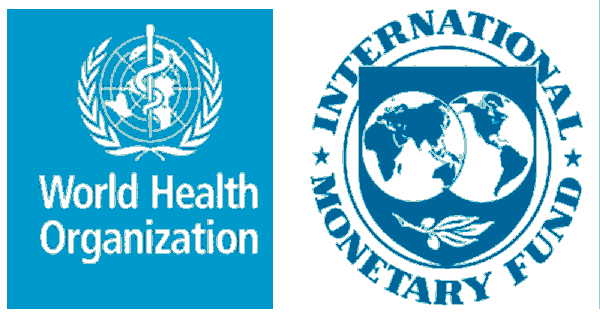
WHO and IMF Leader Say Save Human Life First:
The World Health Organization (WHO) and the International Monetary Fund (IMF) have said that in order to save livelihood amid the coronavirus epidemic, it is necessary to save human life first. WHO Director-General Tedros Adhanom Ghebreyesus and IMF chief Kristalina Georgieva said that COVID-19 must be controlled first to resume economic activity. However, Gebreyesus and Georgieva agreed that it would not be easy to strike the right balance. Both described the epidemic as dense darkness for humanity. The global economy has been badly affected by the Coronavirus. More than half of the world's population is currently working from home due to some kind of lockdown.
In a joint article in the UK newspaper 'The Daily Telegraph', Tedross and Georgieva wrote that the world is taking steps to overcome COVID-19. Various countries have 'stopped' their society and economy to stop the spread of this virus. Both said it would not be right to say that either save life or livelihood. The first thing is to control the virus, and it has to be found. Because it is the first requirement to save livelihood.
Difficulties will come in the recovery of IMF
IMF chief Kristalina Georgieva has expressed concern over the economic losses from Corona. He said at the WHO conference that we are going through a recession. It is impacting both the health and economic sectors. "In the current situation, the number of bankrupt people can increase," he said. In such a situation, the recovery of the IMF will be difficult.
$ 90 billion decreases in the current market
According to the International Monetary Fund, the IMF is investing $ 10 trillion (about Rs 76 lakh crore) to deal with the current crisis. While the current market has decreased by $ 90 billion (about Rs 9000 crore), it is more than the decrease in the 2008 global recession. The IMF is raising emergency funding for the recession-hit developing countries and emerging markets.





